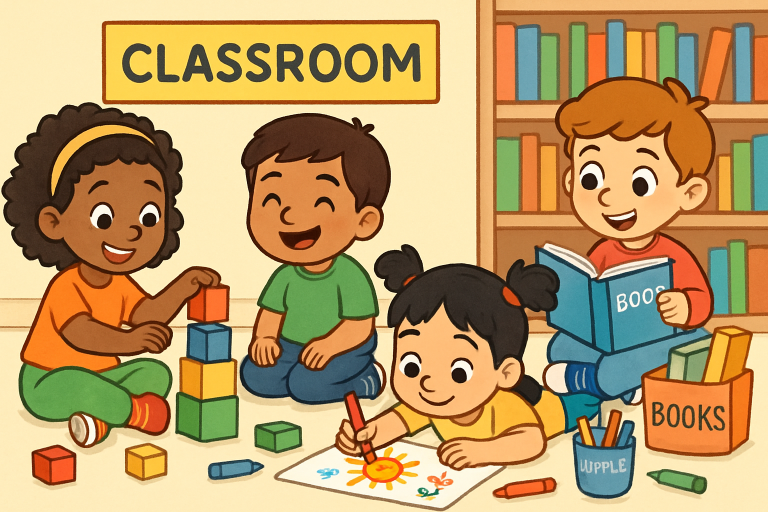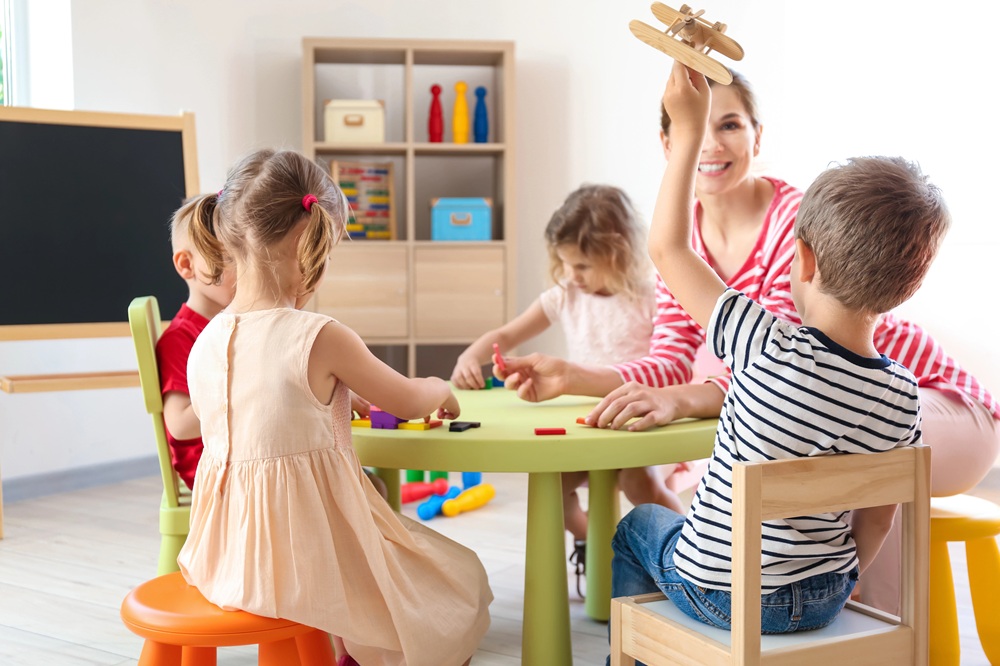Key Takeaways
- Sparking a love of learning helps children develop curiosity and motivation.
- Strong social skills create smoother transitions and positive relationships.
- Consistent routines offer security and stability during change.
- Fine motor skills support writing, self-care, and classroom activities.
- Promoting independence helps kids take on new responsibilities with confidence.
- Introducing letters, numbers, and other basic concepts lays an academic foundation.
Table of Contents
- Introduction
- Fostering a Love for Learning
- Developing Social Skills
- Establishing Routines
- Building Fine Motor Skills
- Encouraging Independence
- Introducing Basic Academic Concepts
- Embracing Play
- Conclusion
Introduction
Starting kindergarten marks an exciting and significant milestone in your child’s educational journey. As a parent or caregiver, your guidance is essential in preparing them for this critical transition. Getting your young learner excited about school goes beyond teaching basic academics—it includes nurturing emotional, social, and physical development. Exploring pre k schools near me can be a great starting point, offering high-quality early learning environments that build confidence, curiosity, and essential skills to ensure your child is fully ready for the adventures of kindergarten and beyond.
Incorporating active preparation at home is just as vital as formal school programs. Establishing routines, nurturing curiosity, and offering chances for independence and play will help your child feel secure and motivated when they start kindergarten.
Creating a nurturing and stimulating environment at home boosts your child’s readiness and eagerness to experience kindergarten. For parents seeking additional support, local pre k programs near me can provide a structured yet caring atmosphere where children develop foundational skills through play and guided learning.

Fostering a Love for Learning
The foundation of lifelong learning begins in early childhood. Engage your child by exploring topics and activities that naturally spark their curiosity, such as asking questions during nature walks or performing simple science experiments together. Reading aloud daily and discussing stories helps expand vocabulary and deepen comprehension, while modeling enthusiasm toward learning teaches your child that education is fun and rewarding. According to Scholastic, early experiences with books and conversations strengthen the critical early literacy skills children use throughout their schooling.
Developing Social Skills
Preschool-aged children are developing rapidly in their ability to make friends, resolve conflicts, and express their emotions. Organizing playdates or participating in group activities allows your child to learn sharing, cooperation, and patience. Encourage practice with polite introductions, listening respectfully, and expressing feelings using words. Developing these skills now lays the groundwork for healthy relationships and successful collaboration in the classroom setting. The CDC recommends allowing kids to interact with peers to foster social and emotional health.
Establishing Routines
Transitions, such as starting kindergarten, can be challenging but manageable with the help of predictable routines. Establish daily patterns that include set times for meals, play, learning, and bedtime. Practicing the school morning routine in advance helps ease anxiety, supports smoother drop-offs, and allows your child to feel in control and prepared for a new environment. Consistent routines offer a sense of safety and resilience during times of change.
Building Fine Motor Skills
Developing fine motor skills is essential for writing, art projects, and self-care tasks. Offer activities that require finger and hand control, such as drawing, building with blocks, using safety scissors, threading beads, and playing with modeling clay. These playful, hands-on experiences build muscle strength and coordination, empowering your child to tackle more complex classroom tasks in kindergarten and beyond.
Ideas for Motor Skill Practice at Home
- Encourage coloring and painting with a range of tools.
- Let children help with simple cooking tasks, like stirring batter or rolling dough.
- Set up puzzles and manipulatives that require grasping and fitting small pieces together.
Encouraging Independence
Kindergarteners are expected to take greater responsibility for themselves. Help your child practice putting on and taking off jackets, managing shoes, and using the restroom with minimal help. Encourage ownership of their belongings and involve them in tidying up after activities. These experiences build confidence, foster a sense of achievement, and ease the transition to new classroom expectations.
Introducing Basic Academic Concepts
Your child doesn’t need to master all academic skills before starting kindergarten, but familiarity with the basics gives them a head start. Incorporate numbers, letters, shapes, and colors into games and daily life—like counting steps, spotting colors on a walk, or playing matching and sorting games. Puzzles and educational songs can further reinforce foundational skills and make learning enjoyable. Understood.org says play-based learning is one of the most effective ways for kids to acquire essential concepts in a relaxed way.
Embracing Play
Unstructured play is at the heart of early childhood development. Provide your child opportunities to explore, pretend, build, and move. Through play, children develop creativity, problem-solving, resilience, and self-regulation—skills they will rely on throughout their school experience. Whether indoors or outdoors, solo or with friends, play nurtures their love of learning while supporting emotional and cognitive growth.
Conclusion
Every child’s journey to kindergarten is unique. By nurturing curiosity, establishing routines, promoting independence, and building foundational skills, you give your child a joyful and confident start to their school adventure. Remember, your support and encouragement at home and through resources like high-quality pre-k programs are essential tools in building a strong educational foundation.

